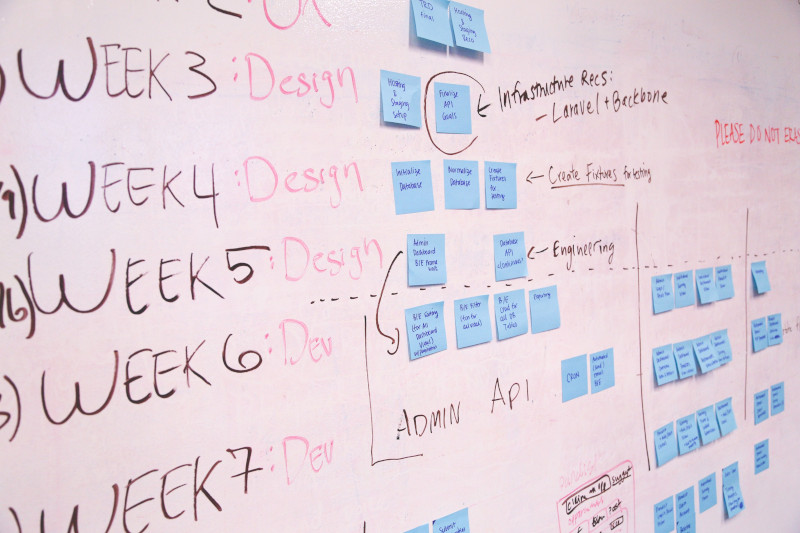Effective project management has always been essential for organizations to stay competitive and relevant to their respective industries while delivering successful outcomes. Project management solutions have seen a remarkable transformation, driven by technical breakthroughs and the changing demands of project-driven enterprises over time. Project management tools have phenomenally changed how we plan, execute, and monitor projects today.

Image courtesy: Startup Stock Photos (Pexels)
Let us delve into the fascinating journey of the evolution of project management tools that have replaced conventional pen-and-paper techniques with sophisticated software solutions.
The Early Days: Pen and Paper to Gantt Charts
In the initial days, project management relied heavily on manual methods. Project managers meticulously recorded tasks, timelines, and resources using pen and paper. However, the need for more efficient scheduling and resource allocation led to the introduction of more efficient Gantt charts. Developed by Henry Gantt in the early twentieth century, Gantt charts helped visualize tasks and action items in a project, track their dependencies, and effectively monitor the status of tasks assigned to different team members. This breakthrough tool enhanced project planning and coordination, enabling teams to visualize and adhere to project timelines.
The Rise of Project Management Software
With the advent of computers in the latter half of the twentieth century, project management tools took a significant leap forward. Software solutions emerged, offering more sophisticated functionalities to streamline project management processes. Early project management software focused on critical path analysis, which helped identify the sequence of dependent tasks and the project's critical path. These software solutions automated complex calculations, allowing project managers to optimize resource allocation and minimize project delays.
Project Management Software Today
Project management software has become an essential part of modern project management practices. Today's software solutions, like Asana, Monday.com, Trello, CatchUp, ClickUp, Basecamp, and NiftyPM, offer a wide range of features and functionalities that empower project teams to collaborate, communicate, and monitor progress effectively. Cloud-based platforms have gained popularity, providing real-time access to project data from anywhere while fostering seamless collaboration among team members regardless of their geographical locations.
Modern project management software goes beyond task tracking and scheduling. It enables document sharing, file storage, and version control, ensuring that team members have access to the latest project information. Additionally, the more powerful tools offer a robust communication interface or integration to one, enabling real-time messaging and video conferencing while facilitating efficient team communication and collaboration.
Agile Methodologies and Collaboration Tools
The rise of Agile methodologies has significantly influenced the evolution of project management tools. Agile emphasizes iterative development, adaptive planning, and continuous collaboration. Collaboration tools, like Kanban boards and team chat applications, have become vital in boosting Agile project management. Kanban boards provide a visual representation of tasks, allowing teams to track progress, identify bottlenecks, and promote transparency.
Automation and Data Analytics
Automation and data analytics have emerged as powerful features in modern project management tools. Automated workflows streamline repetitive tasks, reducing manual effort and human errors. Integration with third-party applications and APIs allows seamless data exchange, enhancing the overall project management ecosystem. Data analytics provide valuable insights into project performance, enabling project managers to make data-driven decisions and optimize project strategies.
Machine Learning and Artificial Intelligence
Artificial intelligence (AI) and machine learning (ML) are being integrated into project management solutions as technology advances. AI-powered Chatbots may give immediate support by answering questions and guiding team members through various project management procedures. Machine learning algorithms can assess previous project data to identify hazards, estimate project completion timelines, and offer the best resource allocation techniques.
From the nascent stages of pen and paper to the sophisticated software solutions available today, the aim of project management tools has always been to empower project teams to navigate and deliver even the most complex projects smoothly. The intersection of technology and project management has facilitated increased efficiency, collaboration, automation, and data-driven decision-making.
As technology continues to evolve, project management tools will undoubtedly continue to advance. The future holds the promise of more intelligent and intuitive solutions, with further integration of AI, machine learning, and automation. Organizations can look forward to enhanced predictive capabilities, streamlined workflows, and improved collaboration enabling greater success through efficient project execution, better resource utilization, and effective communication and collaboration. Embracing these innovative tools and staying abreast of the latest advancements will be the key to thriving in the ever-changing landscape of project management.

